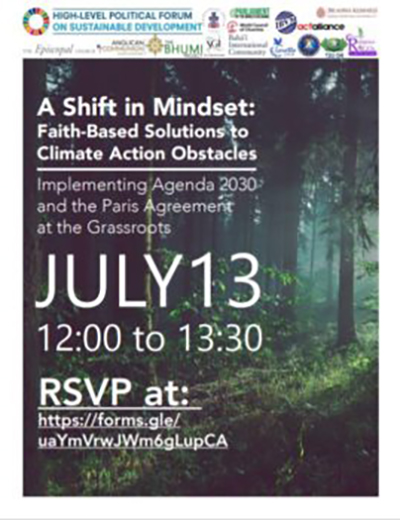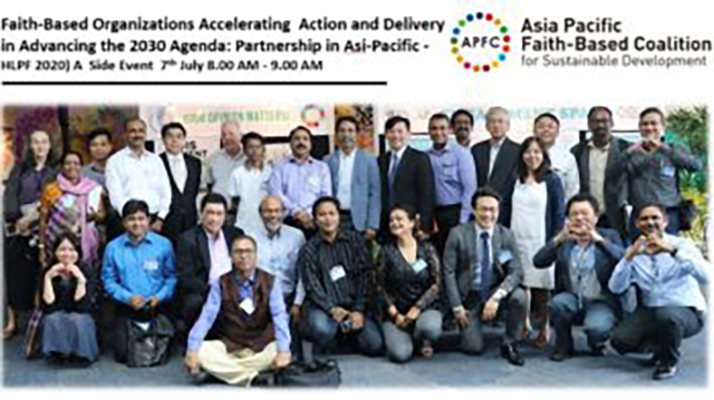
Background
ACT Alliance’s members work through national, sub-regional and regional forums, supporting each other and leveraging collective action in humanitarian, development and advocacy engagement. ACT Alliance is in a key position to act to transform gender injustices by bridging the discourse of religion with that of secular and human rights, and by mobilizing faith leaders.
ACT Alliance, through support from Sida, will fund projects that will help to implement overarching priorities in six gender thematic areas. The application process is open to all ACT Alliance Forums. Projects will be developed by Forums with direct implementation by ACT Alliance members. Collaboration with other Forums and members is highly encouraged.
Interested Forums should submit concept notes directly to the ACT Alliance Secretariat contacts found at the bottom of this call by September 13, 2020..
Objective
This call for concept notes will be the first of two steps towards supporting projects that contribute to gender just societies and build on the Global Strategy for ACT Alliance 2019-2026 and ACT’s Gender Justice Policy.[1] ACT Alliance seeks practical initiatives that strengthen the engagement of faith in the service of human rights. Developed by and with ACT Forums and members, the objective of the proposed initiatives will be to mainstream gender into member projects and programmes, as well as address gender justice issues directly, to ensure that:
- Women have a voice, agency and increased decision-making power,
- Gender norms, roles and inequalities have been considered, and measures have been taken to actively address them (including work on transformative masculinities), and
- Gender security sensitivity has been raised in the ACT Alliance membership in order to address security threats to women, men, and LGBTI-people that work for gender justice.
The projects will have to address one or more of the following thematic areas of the Gender Justice Programme:
- Gender-Based Violence
- Sexual and Reproductive Health and Rights
- Economic Justice
- Transformative Masculinities
- Family Law
- Migration and Displacement
Selected projects will receive up to USD 50,000 and guidance from ACT’s Gender Programme team. A small number of proposals could be considered and receive funding up to USD 75,000 based on their strategic or innovative contribution to gender justice. Please indicate in your application if you consider your project as strategic or innovative.
Ultimate Outcome
Under this call, your concept note must address the following outcome:
- Contribute to changes in policy, practices, narratives and attitudes on gender justice in faith communities, by positively affecting the commitment of churches and other faith-based organizations within the Alliance, as well as their programming, and their advocacy to promote and realise gender justice.
Additional Guidance
Gender Policy
Applicants should indicate whether they have a gender policy, or if a policy is not in place they should indicate their interest in developing a policy through ACT support.
Advocacy
Concept notes may contain advocacy activities aimed at lifting existing barriers and reducing the occurrence of harmful social norms and practices that prevent rights-holders from realizing their fundamental rights.
Preference may be given to proposals that:
- Demonstrate collaboration, in the form of partnerships with other forum members.
- Include innovative approaches that are adapted to the specific context of their implementation.
- Demonstrate clear strategies for addressing sustainability and local ownership, including enhanced participation by local organizations.
How we assess your concept note
Please note that this call will use a two-step application process. In this call, applicants must submit a brief concept note based on the template found as an annex in this document. Successful applicants will be asked to work in collaboration with ACT’s Gender Programme in a second step in the process to refine aspects of the project concept and develop full project proposals. Successful applicants will also be expected to work with ACT staff to ensure that effective monitoring, evaluation and reporting is integrated into projects. Where appropriate, applicants should seek guidance from ACT’s Gender Programme team.
Applications under this call will be assessed on the ability of applicants to sufficiently demonstrate how they will contribute to the objectives and outcomes appearing above. Applications will be assessed by a selection committee that will include ACT members who are part of ACT’s Global Gender Reference Group and by Gender Programme staff. Applications that do not fully demonstrate a contribution to the expected requirements will not be further assessed but could benefit from other ACT Gender Programme initiatives and support in the near future. ACT Alliance Secretariat is also anticipating a call for gender justice projects during 2021. You will be notified if your concept note is selected or if it does not meet expected requirements.
Submissions and questions specific to this call
Please send your complete concept note by September 13, 2020, to Elaine Neuenfeldt, ACT Alliance Gender Programme Manager, at elaine.neuenfeldt@actalliance.org, and to Jaime Hidalgo, ACT Alliance Gender Project Coordinator, at jaime.hidalgo@actalliance.org.
If you have any questions about this call, please email both contacts above by August 28, 2020.
[1] Global Strategy for ACT Alliance 2019-2016: https://actalliance.org/wp-content/uploads/2018/10/10-Global-Stategy-2019-2026.pdf — ACT Gender Justice Policy: https://actalliance.org/documents/act-gender-justice-policy/


